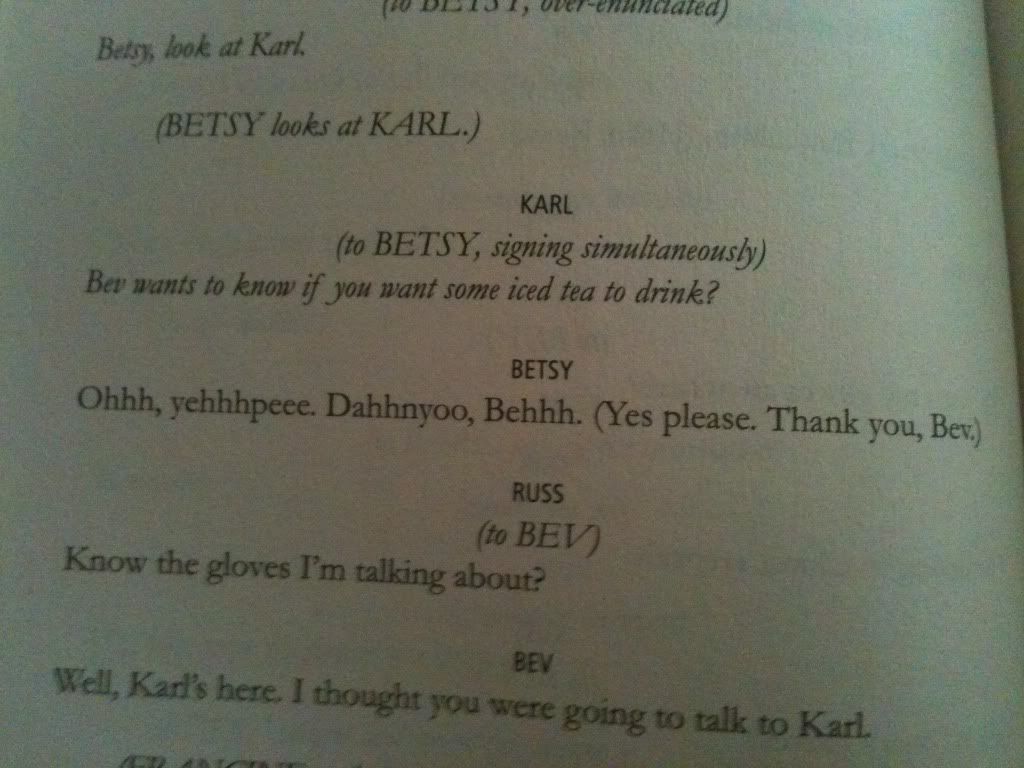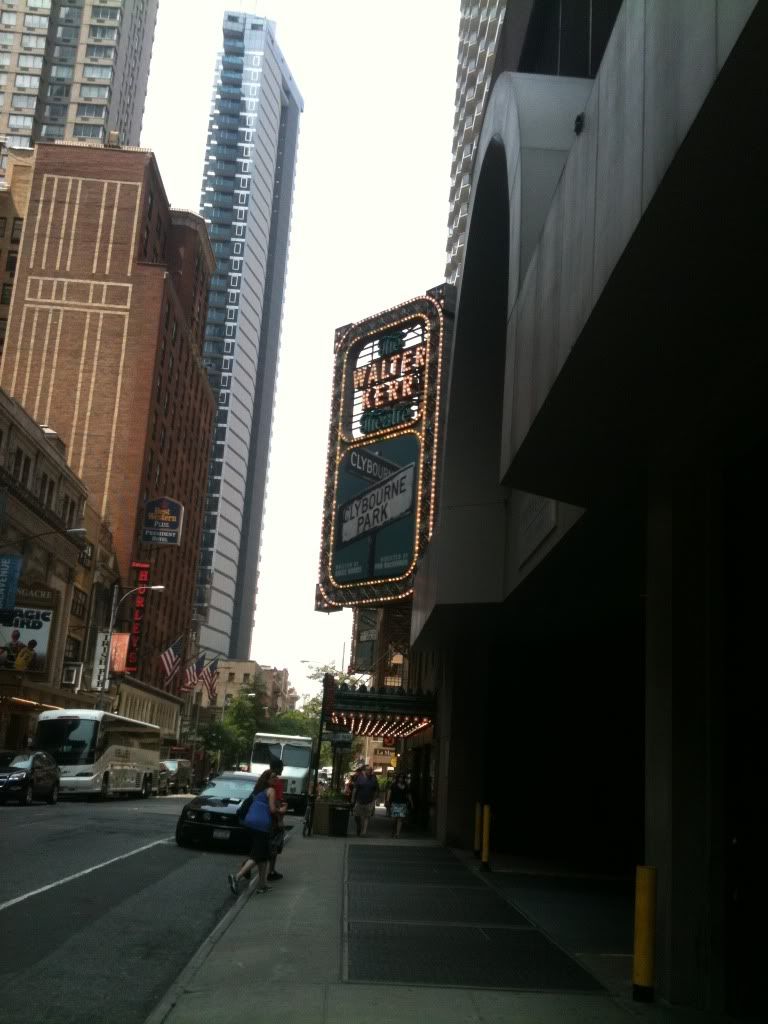I’m
worried that I’m going to sound nit-picky, but I have something I really need
to get off my chest after seeing Clybourne
Park on Broadway on Saturday. Let me
start by lauding the play for its merits.
The
play makes some important points through its slightly overblown (on purpose!)
characters who represent some things we don’t want to face about ourselves and
society. During my time spent as a
sociology major (side note – actual job opportunities stemming from a degree in
sociology: zero), I learned a lot about the sensitive issues surrounding
changing neighborhoods, especially regarding gentrification. I think the characters were fairly adept in
expressing how reluctant we are, as a society, to face these issues. I applaud the play and the playwright for
presenting these issues without claiming to offer a solution. There are merits and drawbacks to ethnically
diverse neighborhoods, and we as a society (like the characters in the play)
are more comfortable skirting around the issues than addressing them head-on.
 |
| From the script of Clybourne Park |
But I
have an issue. Although it is in my
nature to shy away from conflict, I feel confident that Bruce Norris (the
playwright) would want me to just come right out and state my grievances. It might kind of be in the spirit of the
play, in the context of who-is-allowed-to-be-offended-on-behalf-of-whom that I
find my gripe. I have been known to be
too concerned with political correctness and too easily offended on behalf of
others, but I think I have a valid (if inflated) point to make. I was disappointed by the character of Betsy.
She is a deaf woman (and I use a
lower-case d on purpose in this instance) who is the only character in the show
who is one-dimensional and there for the purpose of being the butt of
jokes. I don’t think the writing is an
accurate or respectful representation of the Deaf (capital D on purpose)
community. I’m not Deaf (or deaf), I’m
not part of the Deaf community, I don’t have Deaf friends or family members, and
I don’t speak on behalf of those who are/do.
I simply speak on behalf of me and my feelings. And yes, I do realize that a large part of
her presence in the show is to point out the ignorance of many of the other
characters (particularly Bev, who has no idea how to act around a deaf
person). But I really don’t like the way
her lines are written in the script (see picture), and I don’t think it’s
necessary to write her in such a way.
The punch lines at her expense felt cheap to me. I teach ASL to hearing K-2 students. Generally, I start off with kids who don’t
even know what it means to be d/Deaf. A
vital part of my curriculum is explaining Deaf culture and helping students to
understand that Deaf kids are just like them, with one (minor) difference. Deaf people (that is, culturally Deaf people)
often don’t regard their deafness as a handicap, just a part of who they are,
something worthy of pride. Deafness is
truly a culture in the anthropological and sociological sense.
 A lot of these thoughts occurred to
me while I was seeing Tribes at the
Barrow Street Theater, which shows such a multi-dimensional Deaf community of
real people, with merits and faults.
Betsy is essentially lacking in personality of her own – she is her
deafness, and for the purposes of this play, her deafness is a handicap (people actually swear at her to prove the point that she can’t her them – we get it!), and that
handicap is supposed to be funny. I might
be too uptight here, but I didn’t like that.
You know what? If that means, I’m
uptight, I’m okay with that – read on.
A lot of these thoughts occurred to
me while I was seeing Tribes at the
Barrow Street Theater, which shows such a multi-dimensional Deaf community of
real people, with merits and faults.
Betsy is essentially lacking in personality of her own – she is her
deafness, and for the purposes of this play, her deafness is a handicap (people actually swear at her to prove the point that she can’t her them – we get it!), and that
handicap is supposed to be funny. I might
be too uptight here, but I didn’t like that.
You know what? If that means, I’m
uptight, I’m okay with that – read on.
When I
get in a fit of being all riled up like this, it makes me want to write off the
whole play because of this one instance.
But I can’t. Because it gets so
many things right. Because it made me
really examine how I feel about race.
And, because of how I feel about Betsy, it really challenged me to think
about my position and how racial attitudes and attitudes toward other
communities than mine differ. Why am I
so quick to rush to the defense of people who are fully capable of defending
themselves? It’s a lot like the
characters in act two – not sure if people need or want people of other races to
be progressive on their behalf. Even
now, I worry about whether or not I should even be worried about this. Is that silly?
But, at the end of the day, this
work and these characters, including Betsy – no, especially Betsy, challenged
me. And isn’t that what the theater is
for?
No comments:
Post a Comment